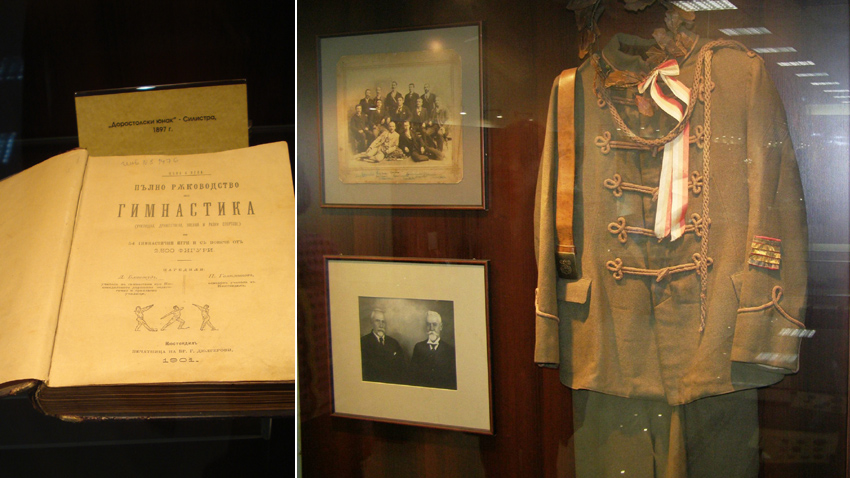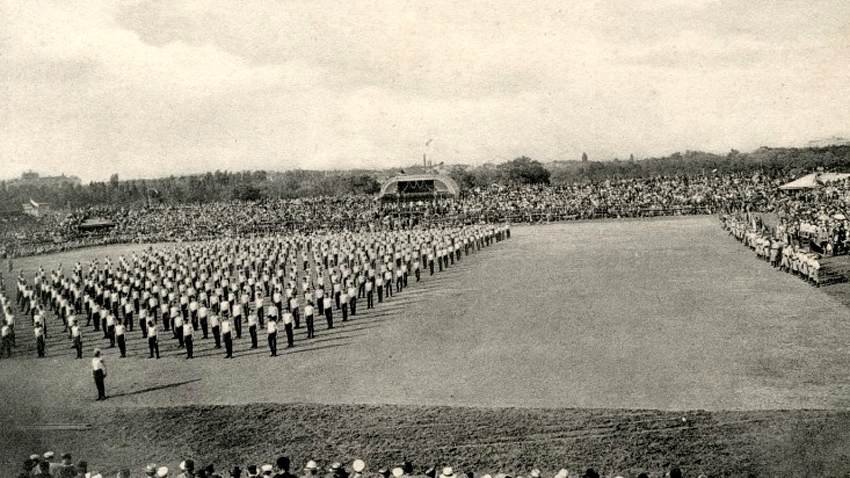In the years following Bulgaria’s liberation from Ottoman rule, the upbringing of the young generation was a top priority for Bulgarian society. The first attempts to introduce physical education were made by chemistry teacher Todor Yonchev who invited 10 gymnastics teachers over from Switzerland. So it came about that the first gymnastics societies in Bulgaria were founded in the years from 1895 until 1897. One year later, a Union of Bulgarian Gymnastics Societies was set up, called Yunak. Its first chairman was Todor Yonchev.
“The social background of the people who joined these societies was most diverse,” says Katya Dimitrova, chief curator of the Museum of Sport in Sofia. “From high ranking civil servants to people with practically no education which goes to show that even in those early years sports played a unifying role. Later, the royal patron of this union was Tsar Boris III and when his heirs were born – Maria-Louisa and Simeon – he would say he wanted his children to be brought up in a spirit of patriotism as members of this organization.”
The members of the gymnastics societies financed the construction of the first gymnasiums and stadiums, where young people would do dancing, athletics, boxing, fencing, wrestling; in some towns – swimming, rowing, horse riding.
“At the Museum of Sport – not a large museum in itself – we have designated a great deal of space to the Yunak Union, and with good reason - its activities were most diverse and spanned different spheres of education and culture, something that made it a unique organization in Bulgarian sports. I am sorry to say many people do not know such an organization ever existed, even though it laid the foundations of modern physical education at Bulgarian schools and of different kinds of sports in the country,” says Katya Dimitrova.

It was the teachers from Switzerland who brought to Bulgaria sports like baseball, basketball, volleyball, figure skating, football. The gymnasts held different kinds of events – literary competitions, readings, lectures, choirs and musical ensembles were set up. Several of the societies published newspapers, many illustrated books were written, describing different physical exercises. Yet the most important part of Yunak’s work were the gymnastics councils, held every two, three years from 1900 on. They included grand parades, gymnastics exercises, long and high jumps, weight lifting, wrestling.
“The participants would do mass gymnastic displays which were, of course, rehearsed beforehand. The aim was to demonstrate the wholesome effect sports have on the human body. The councils were competitive and the winners were awarded medals, plaques, cups and certificates, all of them on display at the Museum of Sport, where visitors can also see the official Yunak Union uniform. A reproduction of a photograph from the 1910 council shows that alongside Bulgarians, there were Serbs, Czechs and Russians taking part as well.”

Most councils were organized among the gymnastic societies in the country, but Bulgarians took part in councils in Venice, Prague and elsewhere. In Bulgaria, the venue for such events was usually the stadium called Yunak in Sofia – on the spot where it once rose, the Vassil Levski national stadium was built. Few people know that Bulgaria took part in the organization of the first Olympic Games in Athens in 1896 with a five-member Yunak delegation. The Yunak Union existed for 50 years but when a Pro-Soviet government was installed in Bulgaria in the mid-1940s it was disbanded. That was when the monument to the Yunak members close to the stadium, right across from where the Bulgarian National Radio building stands today was destroyed because it was allegedly “nationalistic”. But at the Museum of Sport visitors can still see exhibits tracing Yunak’s rich history.
English Milena Daynova
Photos: Dessislava Ivanova and stara-sofia.comThe attack in the "St. Nedelya" cathedral on April 16, 1925 is the deadliest terrorist act in the history of Bulgaria. It took place on Maundy Thursday and in terms of its brutality and premeditation, it has no analogue. During Holy..
On the day of Holy Wednesday, one of the last events before the saving sufferings for humanity of the Son of God is remembered. In her sincere repentance, a sinner managed to enter the house where Christ was staying and, wishing to testify to her..
Holy Tuesday is a day for teachings and final moral instructions. On this day the priests and the Jews listen for the last time to the teaching words of the Son of God in the temple. There, Jesus Christ gives an example of how to give charity –..

+359 2 9336 661
